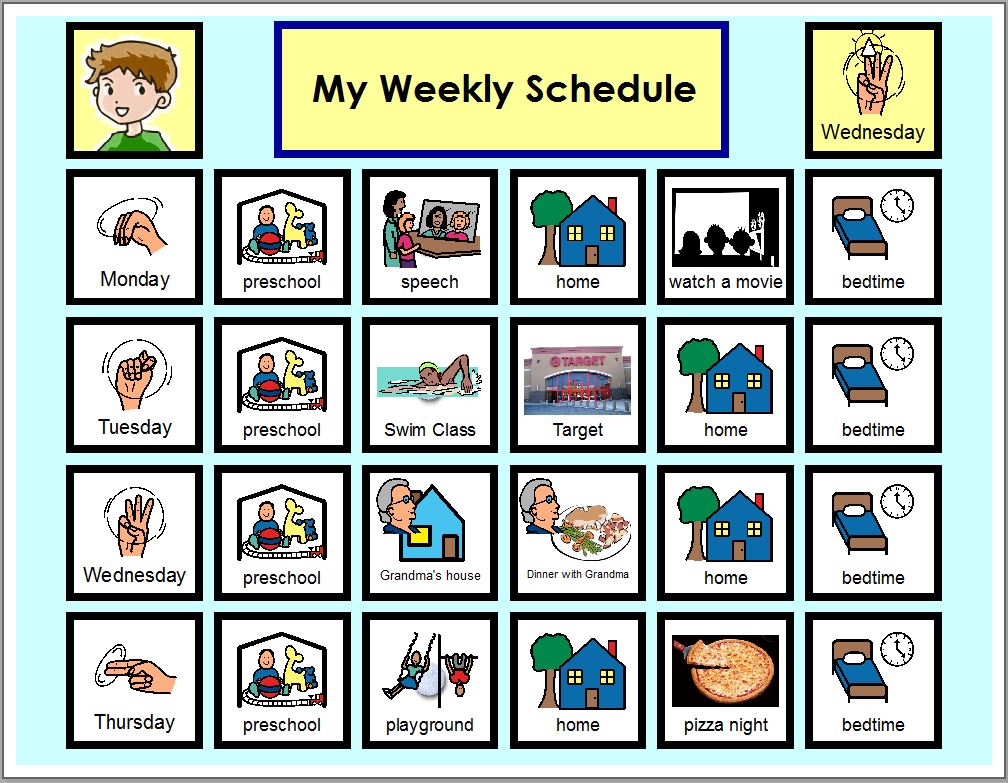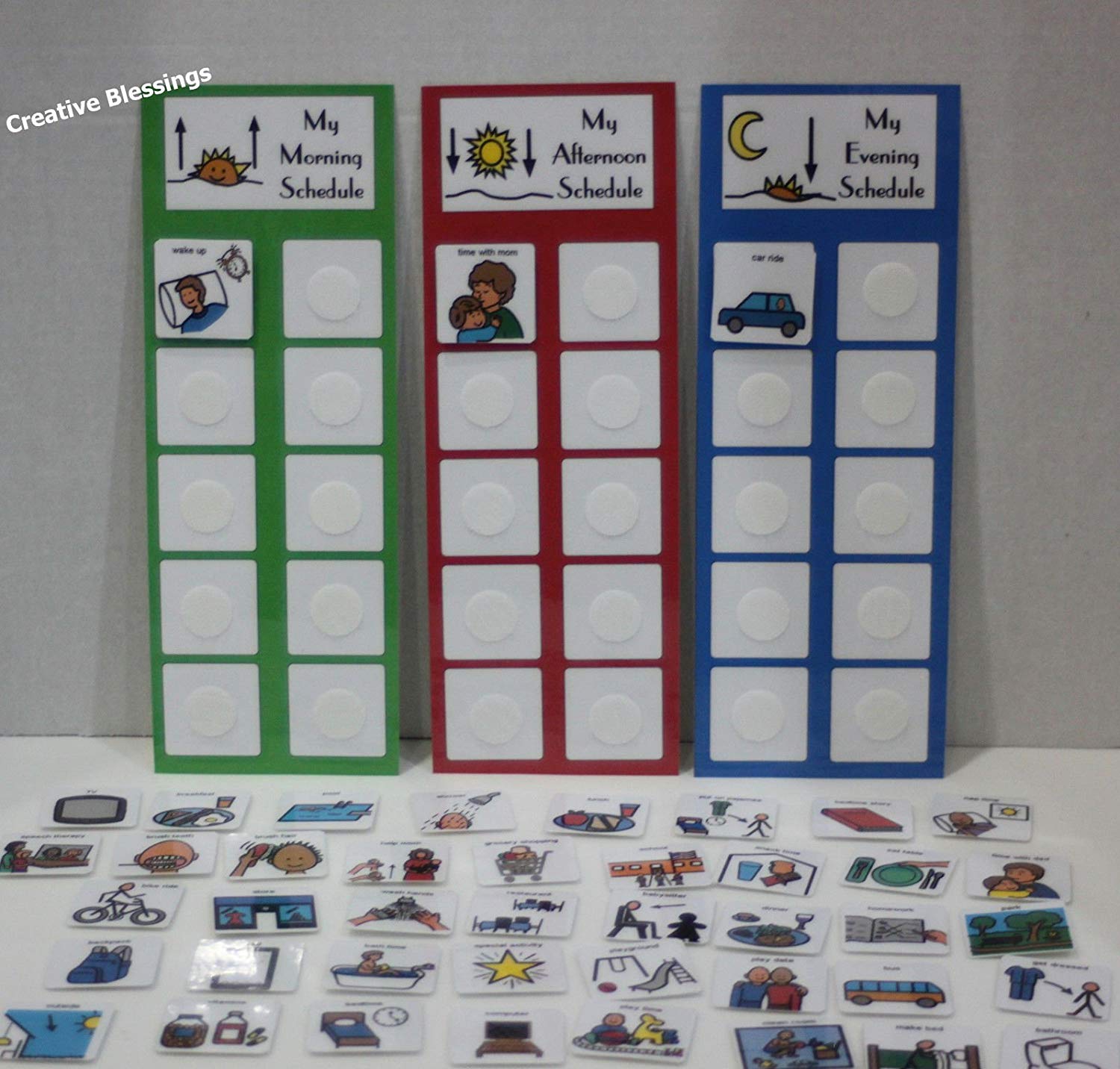One of the best things parents can do to help a child with ASD is to create a routine and stick to it, as they tend to respond well when life is scheduled and they know what to expect. Do what you can to not disrupt the routine. If the routine has to be altered, preparing your child ahead of time is a good idea. Routines also help parents feel in control of situations with their child –
“Every day we do the same thing, and in doing the same thing we lay down patterns of expectations that make the world feel comfortable and manageable.”
Autistic children can become stressed when routines are changed and they may not be able to cope in certain environments because of sensory processing difficulties which can result in frustration and anxiety.
However, a great idea is to create an interactive board for your child so that they can have a visual tool for their daily tasks. This can help parents and teachers also prepare ahead of time to get the child used to a new event.
This visual tool also helps encourage independent behaviour by showing them what needs to be done. It also allows them to prepare and feel a sense of achievement when they’ve completed a task. Children with autism often have trouble with planning, so having a regular routine helps comfort them.
What is an interactive board?
It can vary depending on your needs, it can be stickers on the fridge, it can be a calendar, a whiteboard, or a computer or tablet. You can make it as detailed or as simple as your child’s needs require. Here are a couple of examples:


Before you develop an interactive board, you need to incorporate a plan to manage your child’s obsessions, rituals and routines. Start with thinking about your child’s developmental level and communication skills. For example, does your child have the communication skills to understand your instructions? Do they prefer visual supports? Colour coded?
You can look for samples online. If you type “sample schedule for autistic child” into a search engine, you will find a heap of ideas. We found quite a few on Pinterest to inspire you.
We don’t know what causes obsessive behaviour or the need for routines and rituals. The cause might not be the same for everyone and that is why our team at CCH can help you establish the right tools and routines for your individual child’s needs.
